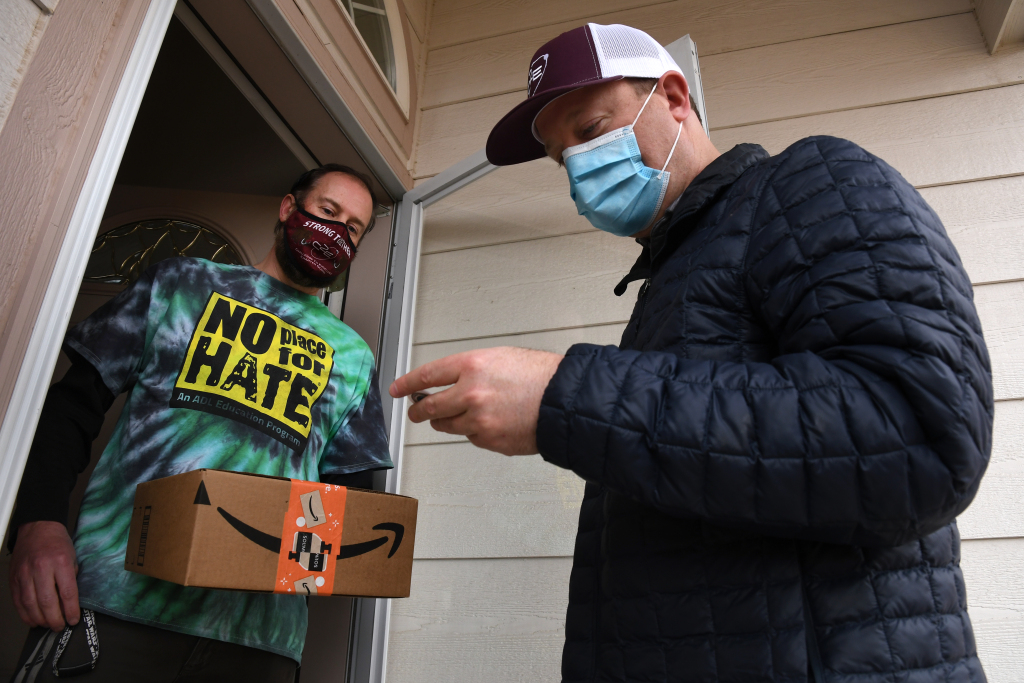Fewer than 13% of the 2 million home COVID-19 tests that Gov. Jared Polis said Colorado would distribute have gone out to the public, and the state’s estranged business partner says a complicated distribution model is to blame.
In a letter to Polis dated April 26, eMed CEO Dr. Patrice Harris said more than 1 million tests could expire this year if Colorado doesn’t change its delivery system. The Colorado Department of Public Health and Environment had partnered with eMed to offer support services, like virtually coaching recipients on how to administer at-home tests.
The letter suggested sending the tests directly to schools, local governments or tourist destinations to distribute, or partnering with Amazon.com for a “one-click” ordering option. The current set-up requires people interested in ordering tests to fill out an online form and wait for the state to verify their information before they can place the order.
“The problem is at the foundation of CDPHE’s distribution model: shipping one individual test kit at a time, after a person completes a multi-day registration process that is individually approved by CDPHE, could never support the distribution of 2 million tests,” the letter said.
The state health department countered that the slow pace of deliveries reflects a lack of interest. A spokesperson pointed to a social media campaign, discussion of the program at news conferences and Polis inviting reporters to come along when he delivered the first kits to a few teachers.
“Despite these efforts, and the state’s due diligence, the demand for these tests is low,” the department said in a statement.
As of Tuesday afternoon, the state health department reported it had shipped 250,758 of the tests, or 41,793 kits with six tests each. Members of the public who order a kit receive instructions to perform a test at home every five days.
Colorado’s overall COVID-19 testing numbers dropped in the spring, perhaps reflecting lower transmission of the virus than over the winter. They have rebounded somewhat this week, though, and it’s not clear why.
The at-home kits use Abbott Laboratories’ BinaxNow tests. Home-testing kits look for a protein on the surface of the virus, so they’re more likely to give a false negative than tests looking for the virus’s genetic material.
The theory is that frequent, quick testing could be more effective at identifying people who need to isolate than somewhat more accurate tests with a longer turnaround time, and the Food and Drug Administration issued an emergency use authorization for BinaxNow.
The tests also are available at some pharmacies, but two tests cost about $24. The state program is free.
Originally, the state only offered the tests to people working in K-12 education. It later added restaurant employees, then others who work directly with the public. Now, “virtually all Coloradans” qualify, according to a statement from the state health department.
At least one other state has taken a different approach. Ohio distributed tests to more than 300 health centers, libraries and other community locations. The Ohio Department of Health estimated it had sent about 500,000 tests to distribution points, but didn’t know how many have been used.
Colorado’s rollout also has another wrinkle: a dispute between the state health department and eMed about who breached their contract.
Under the agreement, eMed would provide up to 10 million tests, as well as support services like certifying test results for people who need a certificate to travel, said Carlos Correcha-Price, the company’s chief marketing officer.
EMed bought 2 million tests and reserved them for Colorado after Polis stated in late January and early February that the state would distribute that many in the first month, but the state has only accepted and paid for about 500,000 of them, he said.
“Since that time eMed has in good faith provided Colorado citizens access to its at-home verified rapid testing and automated reporting platform,” Correcha-Price said in a statement. “In light of the CDPHE’s refusal to honor the remainder of the contract, however, eMed had no other choice than to temporarily suspend service until the situation is resolved.”
The state health department counters that the plan was never to pay for 2 million tests upfront, and that eMed breached the contract by stopping its telehealth support. It urged people with questions about using the tests to watch a video on Abbott’s website, or email [email protected].
“Colorado has purchased these tests based on demand. The purchasing plan has always been based on utilization,” the state health department said in a statement. “We are committed to being responsible stewards of the state’s COVID funding, and we will invest in testing strategies as necessary.”
Subscribe to bi-weekly newsletter to get health news sent straight to your inbox.



















